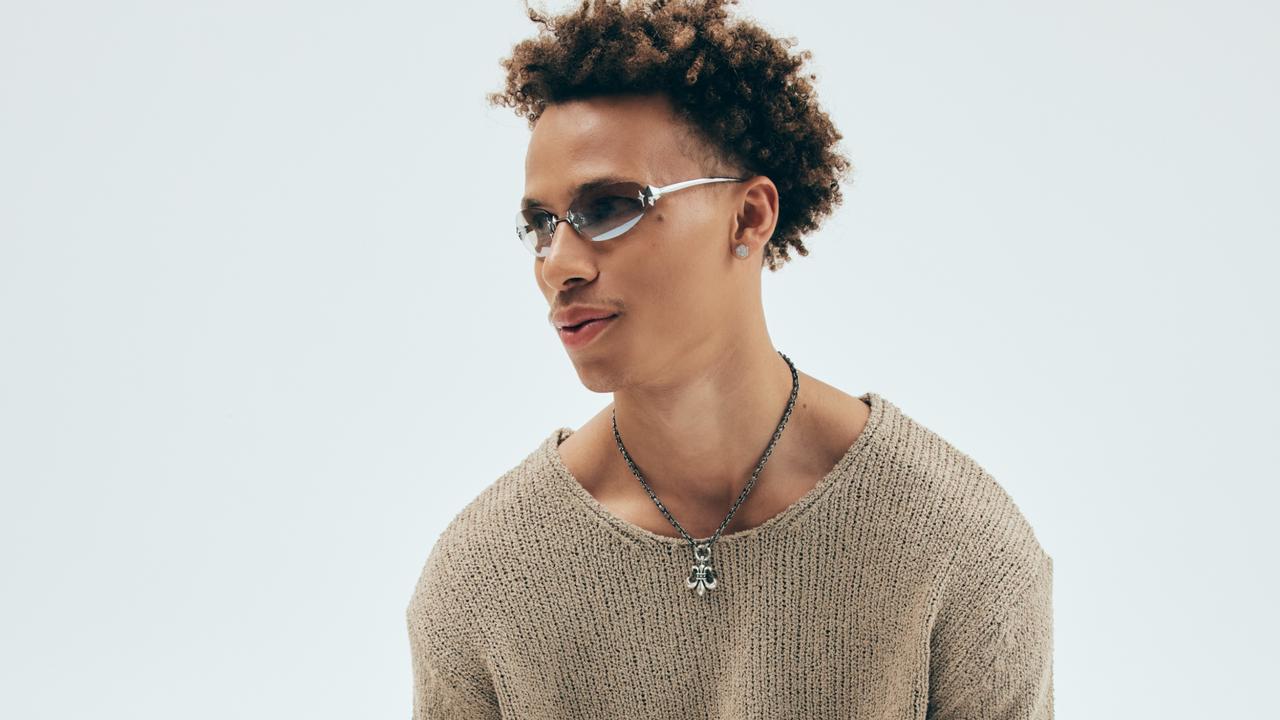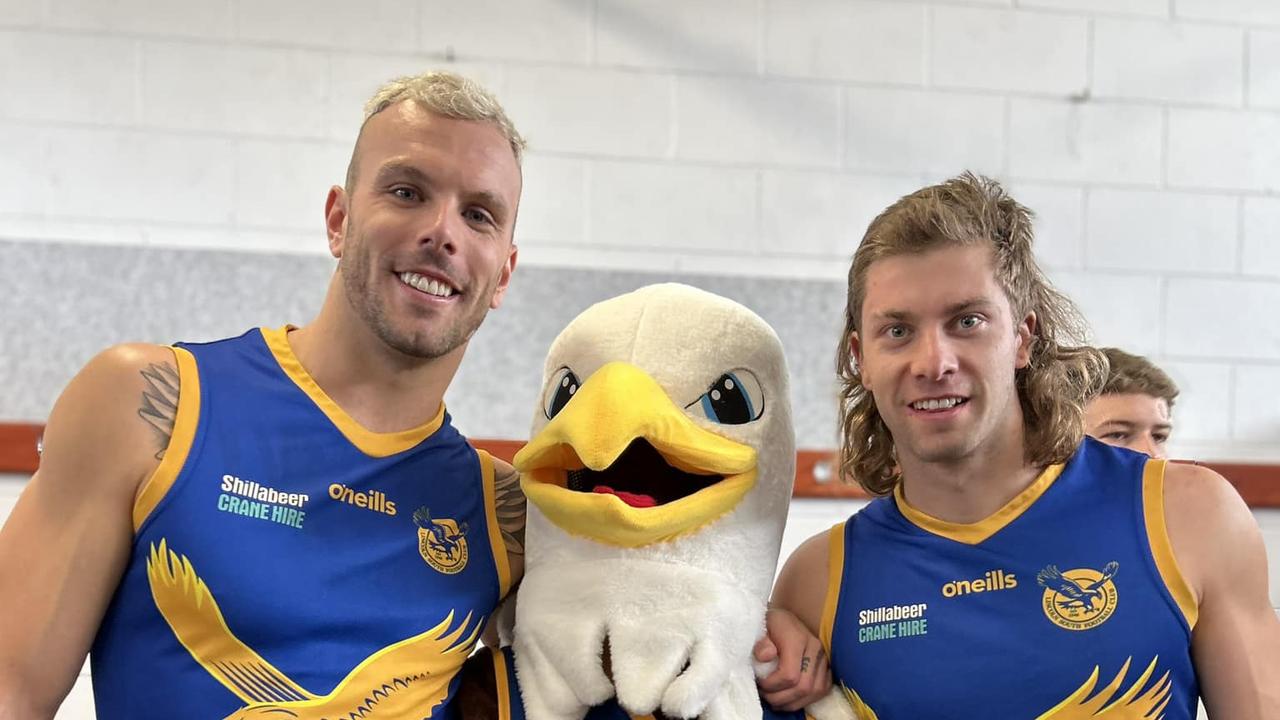Paris Olympics 2024: Volleyball reveals funding cut of $1.2m to zero amid calls for more support for Olympians
The plight of Australia’s Olympic volleyball hopefuls can be revealed, with the sport’s governing body forced to step in to ensure the national team has a coach.
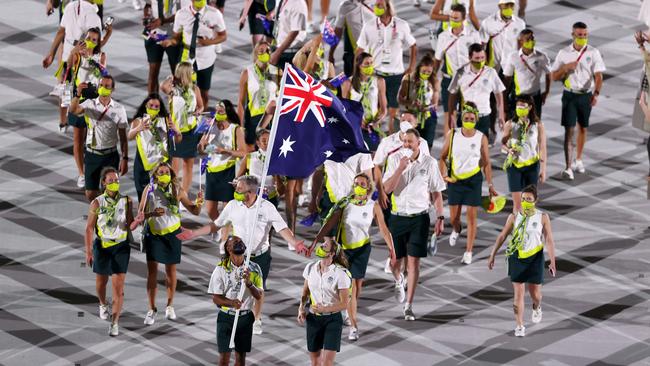
Olympics
Don't miss out on the headlines from Olympics. Followed categories will be added to My News.
Feeling abandoned by politicians after being given next to no chance of qualifying for next year’s Paris Olympics, Australia’s impoverished volleyballers are the canary in the coalmine of Australia’s underfunded high – performance sports programs.
Hardly Australia’s biggest or most popular Olympic sport, volleyball is still symptomatic of the deepening crisis that is crippling Australia‘s elite sports system.
The days when Australia was a country that gave all athletes a fair go have long gone, replaced by a ruthless methodology that has widened the gap between the haves and have nots.
Volleyball is one of the have nots, but it’s not alone because dozens of Australian sports are facing the prospect of cutting their team sizes for Paris because of the funding shortfall.
As it stands, Australia is on track to qualify for both men’s and women’s beach volleyball in Paris but neither gender in the indoor version of the game.
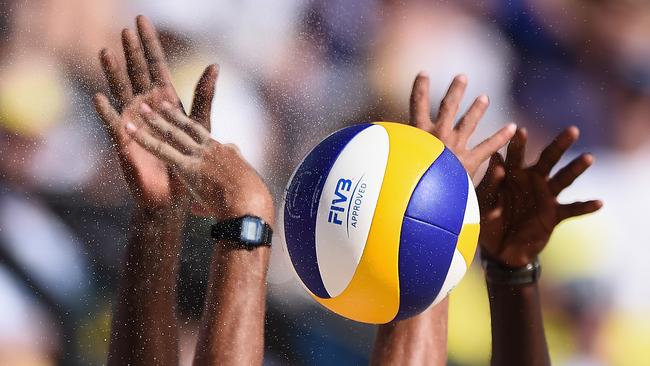
But that’s not because Australia doesn’t have the calibre of players to mix it with the best. They do, but the ‘Volleyroos’ just don’t receive financial support to compete.
The national women’s team lost all their funding after the 2004 Athens Olympics.
The men’s team lost theirs in 2020. Silver medallists at the Asian championships in 2019, they were climbing up the world rankings and had qualified for the sport’s prestigious annual global league (VNL) when the carpet was pulled from under them.
“Despite being 13th in the world, the AIS decided that wasn’t good enough so cut the money from the team entirely and we went from around $1.2 million a year to zero,” Volleyball Australia (VA) chief executive Andrew Dee said.
“Now we’re 39th in the world because we can’t afford to attend all the big events, so we not only miss out on the ranking points but also the chance to play against better opponents.
“We‘ve effectively got no chance of qualifying for Paris now we’re trying to find a way now to get back into the main game.”
But, that’s proving impossible.
While VA does get some limited funding for development programs, there’s not enough for all the elite teams, so most goes to the beach volleyballers, who have enjoyed greater success, with Taliqua Clancy and Mariafe Artacho del Solar winning the silver medal at the 2021 Tokyo Olympics.
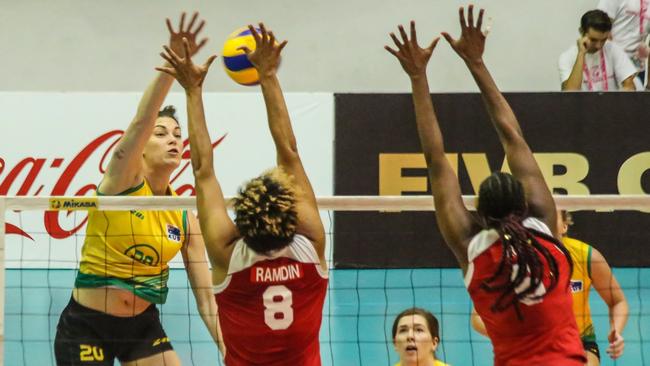
Whenever players get picked for the Volleyroos, they often get two emails: one congratulating them on being selected, and a second with an invoice for how much they need to chip in just to wear the green and gold.
The sport’s pleas to the federal government for help have gone unanswered, although other countries have been more sympathetic.
The sport’s world governing body FIVB has taken pity on Australia and agreed to pay for a full time head coach, because VA has no idea whether Canberra will ever help them out.
There is still hope the government will free up some cash from the mid-year financial budget set for December, but Dee said that won’t solve the damage that’s already been done.
“That‘s where the dreams evaporate because you’re chasing your tail the whole time,” Dee said.
“If it materialises, it‘s too late for Paris because qualification will be done by then.
“And if they kick it down the road to the 2025 budget, that means that these athletes will be waiting another two years before they even know what they‘re able to start doing.”
AUSTRALIAN SPORT’S WORST-KEPT SECRET EXPOSED
Australia’s best young athletes have been warned their dreams of competing at next year’s Paris Olympics and Paralympics could be crushed before they even begin after the federal government rejected their desperate plea for a little extra funding.
It’s already the worst-kept secret in Australian sport that many of the country’s most admired Olympic and Paralympic stars struggle to make ends meet because of the pitiful handouts they get from Canberra – but the problems have dramatically escalated.
With just over a year to go before the Paris Games, the funding shortfall has now reached crisis levels with some sports facing the heartbreaking prospect of telling athletes they can’t afford to send them to qualifying events.
Already operating on a proverbial shoestring, the costs have blown out since the 2021 Tokyo Olympics because of the rising rate of inflation and soaring travel costs, leaving cash-strapped sporting bodies needing a helping hand just to qualify competitors.
So they went cap in hand to the government, submitting a detailed application before the last budget, asking for an additional $18.3 million to cover all the extra costs for all the qualifying events for every sport at the Paris Olympics and Paralympics.
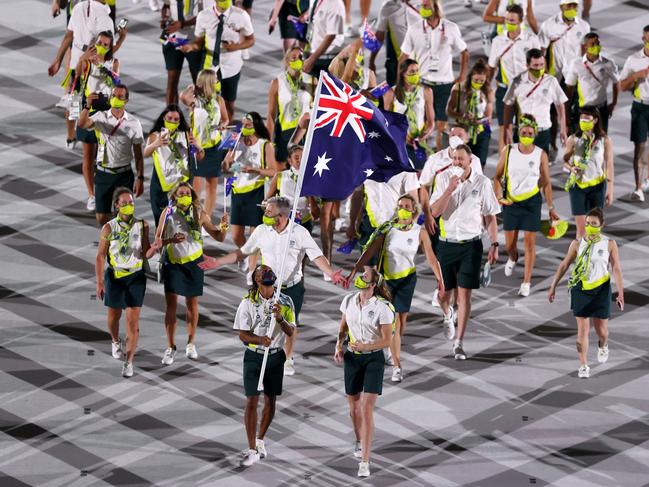
With Prime Minister Anthony Albanese actively promoting his image as a sports-loving leader, they were confident of a favourable response but their request fell on deaf ears and they didn’t get an extra cent.
Deflated sports officials were told to try again in the future, but with the clock already ticking towards Paris, AOC chief executive Matt Carroll says kicking it down the road won’t solve the immediate crisis.
“We‘ve now got to the point, with the Paris Games taking place next year, where sports are really doing it tough,” Carroll said.
“They‘re actually now having to look at reducing squad sizes, reducing the number of athletes they send to the qualifications, therefore reducing the opportunity for many young Australians to get their dream of the Paris Games.”
Individual sports leaders are becoming increasingly frustrated and concerned about the future of their sports and their athletes, particularly when grandstanding politicians seem only too happy to pour taxpayer funds into building new stadiums for wealthy football codes.
High-performance competitors might look a million dollars but they are also very vulnerable because of the pressures they face and Hockey Australia boss David Pryles said the lack of proper financial support was having a devastating impact.
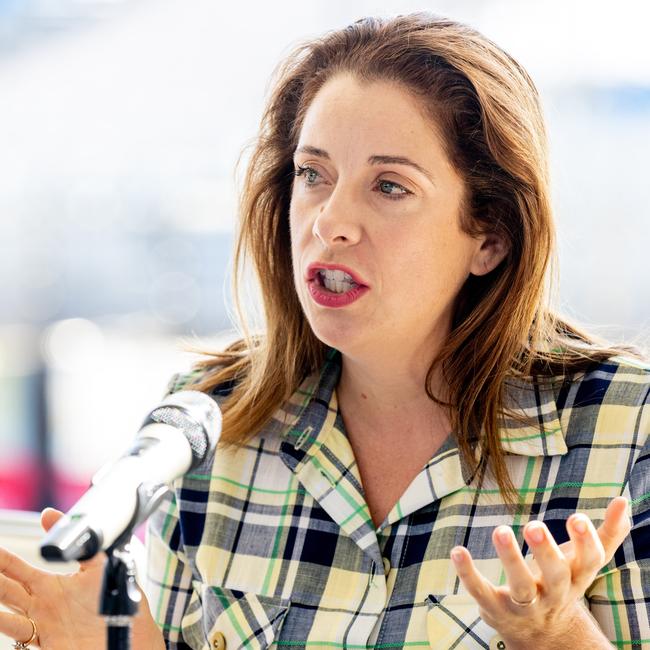
“Performance in Paris is very much under threat, however if the situation is not addressed the implications for LA (2028) and Brisbane (2032) are far worse,” he said.
“For Paris, compromised preparations will clearly result in compromised performance. We have needed to make major compromises across the entire cycle for the Hockeyroos, with these having a growing impact the closer we get to Paris.
“For both programs we are not able to set up an environment and plan that will give the best chance of podium in Paris.”
Volleyball Australia – another sport which has been decimated by cruel funding cuts – also faces a bleak future.
“We don‘t have any money from the government,” Volleyball Australia CEO Andrew Dee said.
“And what we do have, we kind of piece together through philanthropy and other commercial activities and through the good graces of our international body who give us a little bit of money to put together a program for them on an annual basis.
“But it‘s not enough to really develop any sort of prowess or competitive status within the international world.”
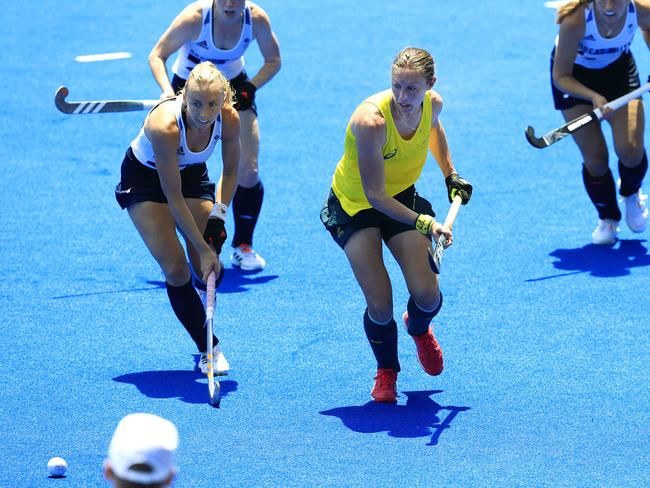
Athletics Australia boss Peter Fromley said the biggest long-term casualty from lack of investment will come when Brisbane hosts the Olympics and Paralympics in 2032.
“It’s imperative that Paris 2024 and LA 2028 are fully considered and understood to be key milestones in the lead up to 2032,” he said.
“The right support from the Government for these two Games will ensure that we have access to resources needed and this can also influence the support of the wider public and corporate Australia. The lack of the appropriate support will have a direct impact on the performance of athletics at these Games.”
Federal Sports Minister Anika Wells rejected the notion the government was not spending enough on sport, saying: “The Albanese Government continues to invest in sport at all levels. In this financial year, the Labor Government is providing more than $127 million to Olympic, Paralympic and Commonwealth Games sports for high performance and pathway support.
“The Government has also committed billions as part of the green and gold decade through to Brisbane 2032, including more than $40 million for the FIFA Women’s World Cup starting in July this year.
“We continue to consider appropriate investments in sports and athletes to help them perform at their best.”
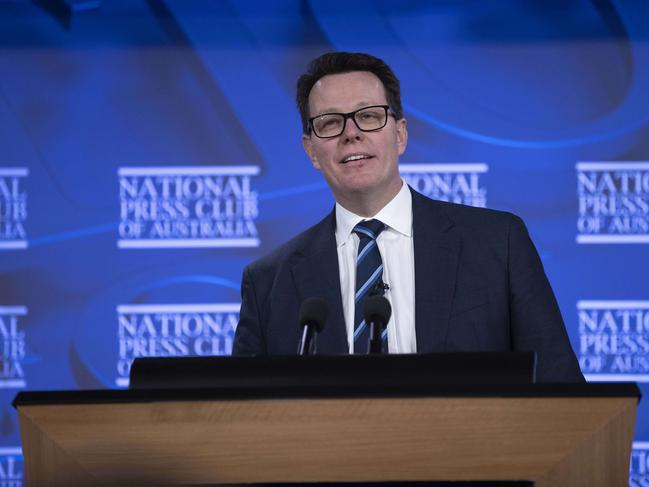
But Olympic swimming legend Kieren Perkins – who is the head of the government-backed Australian Sports Commission – did acknowledge that sports are facing serious financial problems and better solutions need to be found.
“We know that many sports are strained with the increased costs of touring and running high performance programs,” he said.
“The rising cost of living is an issue affecting so many Australians and the impacts are being seen across every sector.
“We’re empathetic to the issues sports are facing and are working closely with the Government to support our athletes to deal with these challenges.”
There is still one last glimmer of hope that Australia can still send a full-strength team to Paris with the mid-year financial budget set for December.
Sports have all resubmitted bids asking for help to cover the cost of qualifying but know this is their last shot.
“We‘re working with the Minister of Sport’s office and obviously the Sports Commission but it can’t wait,” Carroll said.
“It can‘t be kicked into next year. Next year’s budget is too late. Paris is July next year.
“But it’s not just about numbers and qualifications because there‘s a human story behind all of this. These athletes have been working very hard to qualify and they will qualify as long as they can get to the events.”
Originally published as Paris Olympics 2024: Volleyball reveals funding cut of $1.2m to zero amid calls for more support for Olympians


